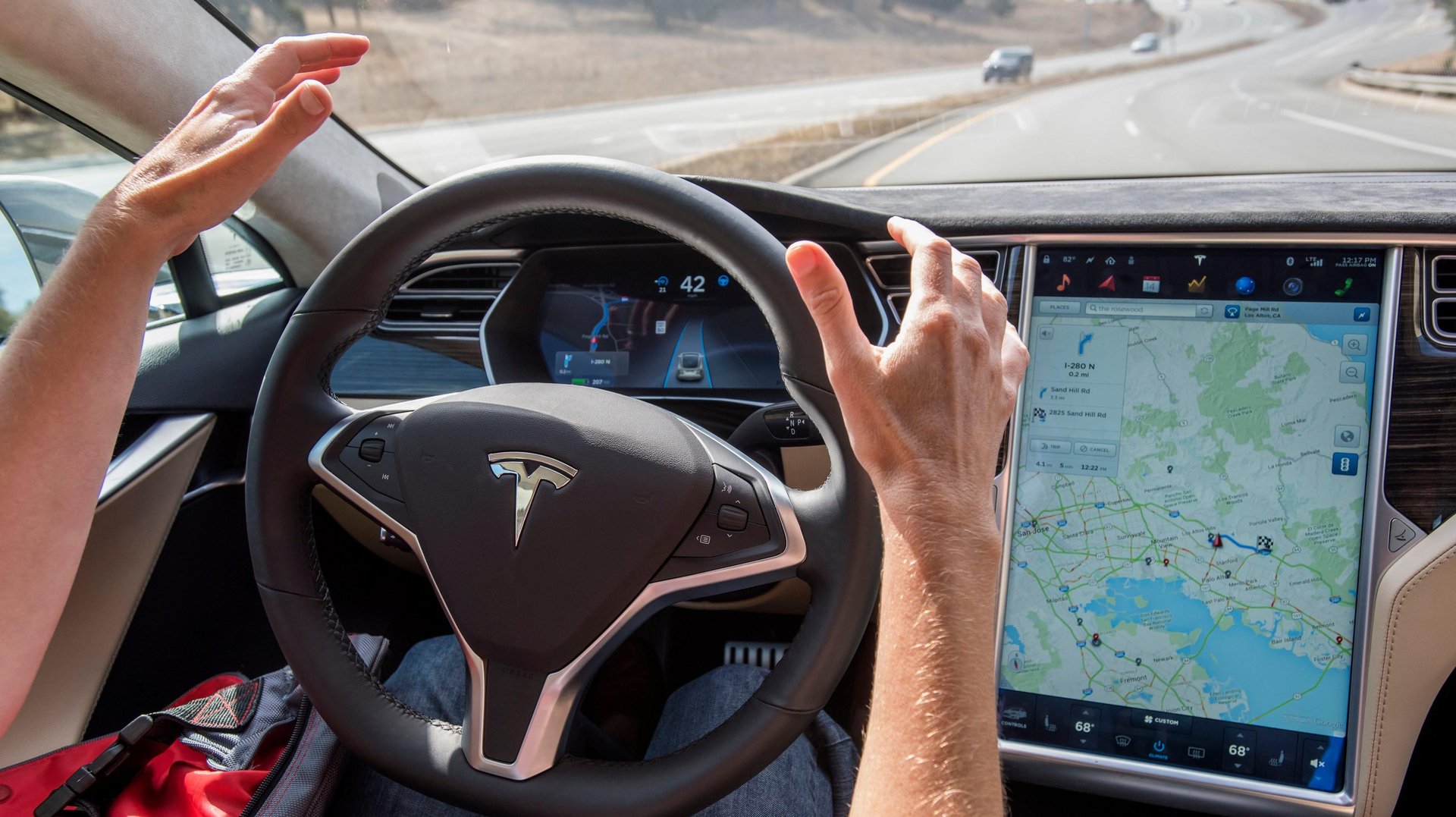Tesla's alleged lies about Full Self-Driving brought a dead lawsuit back to life
Elon Musk's EV maker "allegedly lied about its progress incrementally and with increasing specificity over time," a federal judge said

A federal judge in California said Wednesday that Tesla will have to face off in court against a customer who sought to bring a class-action lawsuit against the company for allegedly lying about the self-driving capabilities of its cars.
Suggested Reading
Bloomberg reports that Thomas LoSavio bought a Tesla in 2017 and paid an extra $8,000 for the Full Self-Driving (FSD) feature. The year before, Tesla CEO Elon Musk boasted that his company’s vehicles would soon be able to drive themselves from New York to Los Angeles without their drivers’ help. But that promise kept stretching further and further into the distance.
Related Content
“Tesla allegedly engaged in a systematic pattern of fraud over a long period of time, LoSavio alleges, plausibly and with sufficient detail, that he relied on these representations before buying his car,” Judge Rita F. Lin of the Northern District of California wrote in an order. Recounting the twists and turns of Tesla’s FSD claims, she wrote:
Every year after LoSavio’s purchase, Musk allegedly repeated that Tesla’s cars were getting closer and closer to full automation, and that the next year — every “next” year — the cars would drive themselves. As LoSavio noted during the hearing, these were not mere recitations. With each iteration, Musk’s statements became more specific. For example, in April 2017, Musk allegedly said that Tesla owners could sleep while their cars drove in about two years. The next year, Musk allegedly claimed that Tesla would have over a million robo-taxies on the road in 2020. And in January 2021, Musk allegedly said he was “very confident” that Tesla would achieve SAE Level 5 autonomy that year based on the technical roadmap and beta iterations.
In 2018, a Tesla owner died after his car’s autopilot feature drove him into a highway barrier. The company settled a lawsuit stemming from that incident just last month. When Musk said a few days before the settlement that the company would be unveiling a fully-autonomous taxi in August, Deutsche Bank analysts said that “in no way means the technology is ready.” Tesla customers who have tried out FSD after the company made the normally paid feature widely available for a free trial say it keeps running them into curbs. Last week, reports emerged that the Justice Department was looking into whether the company’s proclamations about FSD amount to securities fraud.
When LoSavio originally brought the suit in 2022, he was joined by four other co-plaintiffs in anticipation of a wider class-action, according to court filings. But then a previous judge in the case, Judge Haywood S. Gilliam, Jr., ruled in September that Tesla’s arbitration agreements for customers meant they had to pursue a remedy using that system instead. He allowed LoSavio to amend his complaint, though, and despite Tesla’s protestations in January that “LoSavio’s case is on its last legs, and it should go no further,” Lin said the version of the suit riding on his amended complaint could go forward.
“Tesla did not recite the same lie time and time again; instead, it allegedly lied about its progress incrementally and with increasing specificity over time,” Lin wrote. Shares in Tesla fell 2% in Wednesday trading. The stock is down nearly 30% for the year.
